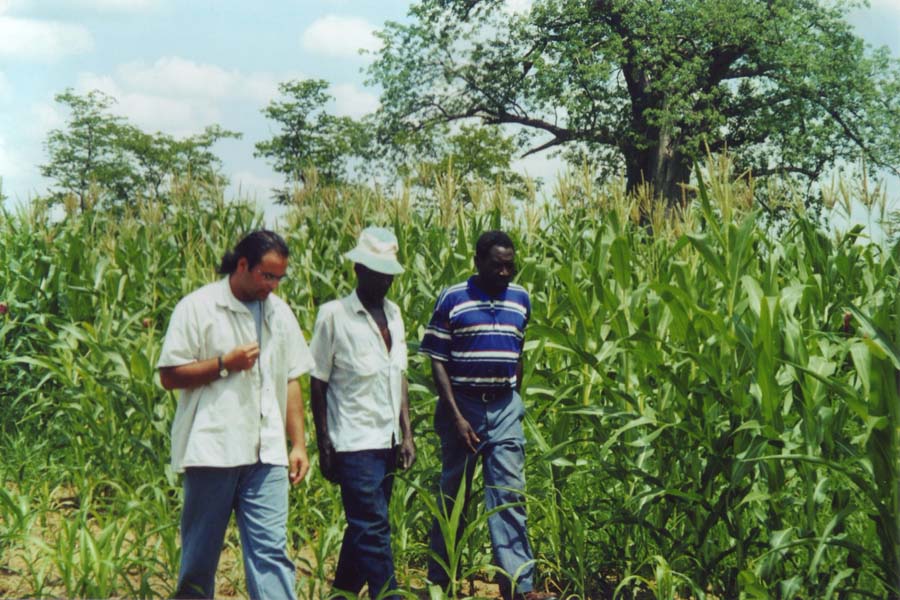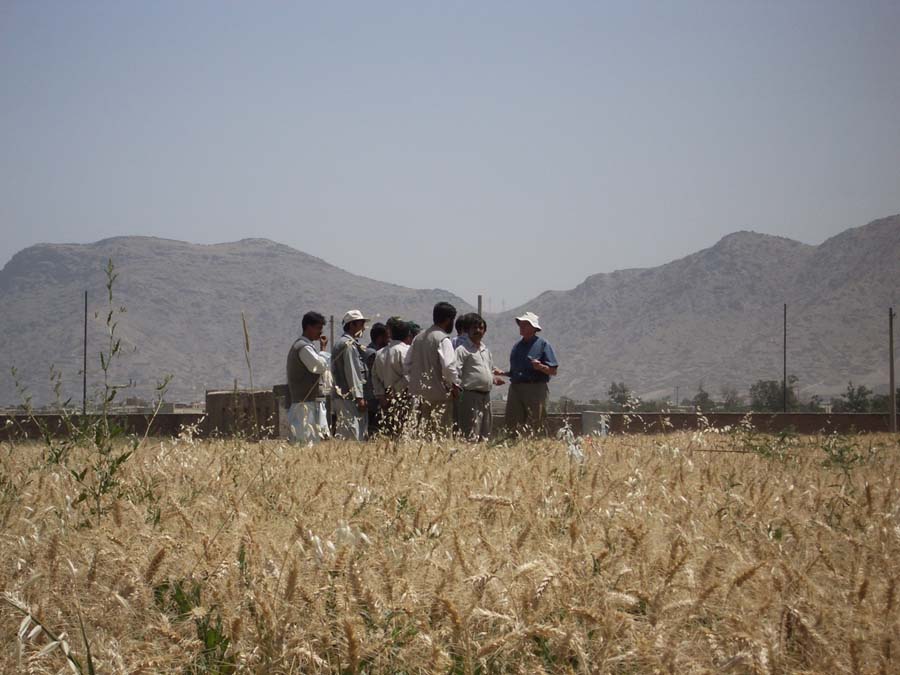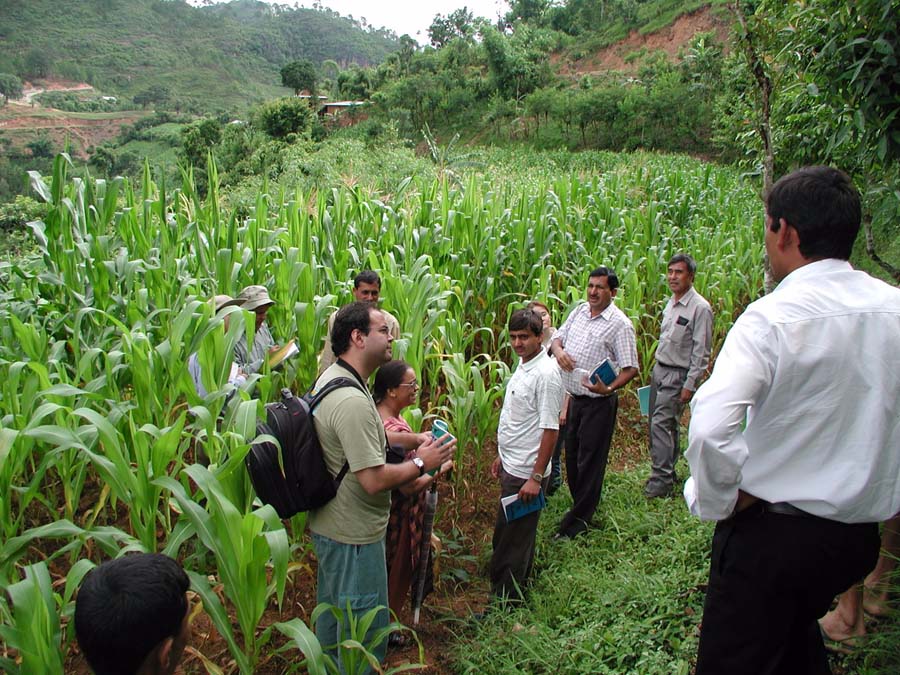10 minutes with Julien de Meyer
Current role & organisation:
Agriculture Scientist working as a consultant for ACIAR, FAO and other European donors.
How did you get involved in international agricultural research?
For as long as I can remember, I always wanted to work in aid/sustainable development in any type of jobs! So in my last year of high school, I studied the annual report for the Swiss Agency for Development and Cooperation (SDC) – I am Swiss originally – and looked at the type of professionals they were recruiting. SDC needed first and foremost doctors and nurses, and just behind, specialists in forestry and agriculture. In the 1990s Switzerland Official Development Assistance (ODA) had a very strong rural development focus.
I was not going to embark in long medical studies, and was not that keen on forestry, so I decided to study agriculture. At the end of high school, I went to work in a private sisal plantation in the South of Madagascar, to check if I could do it… I was hooked to the job and the region, there was no turning back! As I finished my Agriculture degree, the Swiss government had changed and along with that, its aid policy. The SDC focus was on poverty reduction and education and they were recruiting mostly social scientists…so there were very few opportunities for aggies. This was bad news for me… so I then decided to start a PhD and worked in a research laboratory serving the wine growing industry. This by the way, was a good job as well, with the added benefit of wine bottles for Christmas and office parties! Anyway, from my lab, I kept applying for any jobs I could find in international agriculture. I worked as a volunteer in the Philippines and finally got a job as an associate scientist with the International Centre for Maize and Wheat Improvement (CIMMYT) based in Zimbabwe. This was in 1997 and since then I have always worked in a field related to international agriculture research.

Picture: Julien (rocking a rad ponytail) with maize farmers in Zimbabwe
What is your favourite thing about working in international ag?
International agriculture has offered me the most diverse and interesting career. As an associate scientist with CIMMYT, I landed a dream job as my first job. I was given a four-wheel drive, packed it with seeds and fertiliser, and my task was to drive in different regions of Zimbabwe and find willing farmers and extension agents to work with us in participatory variety selection trials. After two years, I had 150 experimental sites in 30 villages scattered in various part of the country. I would drive in the most beautiful and remote places in Zimbabwe, meet great people, stay in farmers or extension agents’ homes. We would discuss trials and farmers needs and demands. I would then bring this information back to CIMMYT breeders and agronomists as an input to their research program. After Zimbabwe, I went to work at CIMMYT headquarters in Mexico, then worked in Indonesia and since then have worked in research projects in over 40 countries. My latest job, before coming back to Australia, was working with the Food and Agriculture Organisation of the United Nations (FAO) in Rome.
Back to answering the question, my favourite thing about this job is … everything, it is diverse, challenging, interesting and, will take you all over the world.

Picture: Tony Fisher with wheat breeders at Darul Aman Research Station, Afghanistan (Julien is behind the camera taking the photo)
What has been your biggest achievement working in international ag?
During my work in Zimbabwe, in just three years, thanks to the work we did with farmers, extension services, breeders, agronomist and three private companies we managed to develop maize cultivars that would yield 30% more under drought and low fertility conditions than the best commercial varieties available at the time. Today, these cultivars are widely present in various countries in Sub-Saharan Africa and recently, I found them in the mid-hills of Nepal. This is another incredible thing about this job, as agricultural scientists we are part of this incredible and relatively small and passionate scientific community, where good ideas can be shared and make a difference in different parts of the world!
What are some of the challenges you’ve faced?
Well, this amazing career comes at a cost, mostly it is difficult for families, as our work takes us away from home often. One must have very adventurous tastebuds. Farming communities that demand our services tend to live in remote area and are not always easy to reach. Finally, as a young ag graduate, I was convinced I would have a tremendous impact in developing countries, nearly 20 years later, I must admit that I have not succeeded as well as I would have liked. In ag research, we ask a lot of questions and find answers only to a few. Successful outcomes depend on many factors that are outside of our control. It is often challenging to remain optimistic.
What advice can you give RAID’ers interested in a career in international agriculture?
For me this is a great career, but it is not linear, you will work in various institutions as well as in various short and long-term projects . So you need to be ready to grab whatever opportunities you find, first as a volunteer if needed, then as a graduate if possible, then as a scientist, stay open, embrace change, grab opportunities when you see them and do not burn bridges, the international ag community is small and you never know who you will meet again. Finally, if you start a PhD… finish it, you will need this paper later in life!

Picture: Julien with maize researchers visiting a farmer involved in participatory research in Mid Hills, Nepal


